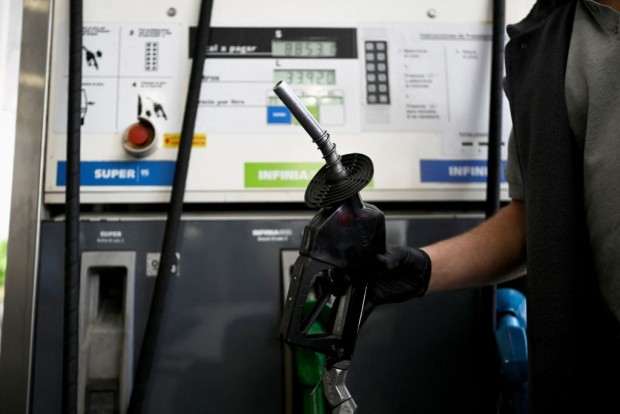Argentina's Economy Minister Issues Warning Over Fuel Shortages: Export Restrictions Loom
By Quincy Cahilig
Mar 14, 2024 06:40 PM EDT
Mar 14, 2024 06:40 PM EDT
Argentina's Economy Minister and presidential candidate, Sergio Massa, delivered a stern message on Sunday, warning oil producers in the nation of impending export restrictions unless they swiftly address the ongoing fuel shortages.
Stressing the priority of resolving domestic fuel supply issues, Massa declared, "Argentines' oil belongs first to Argentines," as reported by Bloomberg.
Speaking to reporters in Tucuman Province, Massa expressed concerns about certain companies hoarding fuel and anticipating potential currency devaluations post-presidential elections. He stated that companies would be barred from exporting fuel starting Wednesday if the fuel supply crisis isn't resolved by midnight on Tuesday.
These remarks come amid widespread fuel shortages, which have led to long queues at gas stations and closures nationwide. The shortages have worsened due to the government's limited access to dollars, delaying fuel imports as ships remain stranded at sea.

(Photo : Luis ROBAYO / AFP)
In response, Argentina's oil and gas producers released a joint statement on Saturday, assuring that fuel shortages would soon normalize. The government plans to import 10 tanker fuel shipments and expand refining capacity to meet rising demand.
According to the Catholic University of Argentina (UCA) and local media sources, Argentina's poverty rate increased to 57.4% in January, the highest level in more than 20 years. President Javier Milei started the peso currency devaluation shortly after his inauguration in early December, and the ensuing price increases made poverty levels, which ended the previous year at 49.5%, worse, per Reuters.
Milei had campaigned on promises to "dollarize" the economy, curb an annual inflation rate exceeding 200%, eliminate the fiscal deficit, and put an end to benefits for Argentina's political dynasties, which he refers to as "the caste."
Argentina recently finalized an agreement with the International Monetary Fund (IMF), unlocking $4.7 billion for debt restructuring, as reported by Al Jazeera. With inflation exceeding 160% and a significant percentage of the population living in poverty, the agreement aims to restore macroeconomic stability.
President Javier Milei seeks to revive a $44 billion bailout package initiated with the IMF in 2018.
The IMF outlined the agreement's policies, emphasizing fiscal consolidation, reserve building, and market-oriented reforms. Pending approval from the IMF's executive board, the agreement seeks to address challenges faced during negotiations under the previous administration, exacerbated by the COVID-19 recession and adverse weather conditions.
Under Milei's leadership, efforts to reduce public spending and implement economic reforms are underway, including proposals to privatize state-owned enterprises and restrict public demonstrations. The government has also implemented austerity measures such as currency devaluation, subsidy reductions, and ministry closures.
© 2024 VCPOST, All rights reserved. Do not reproduce without permission.
Join the Conversation